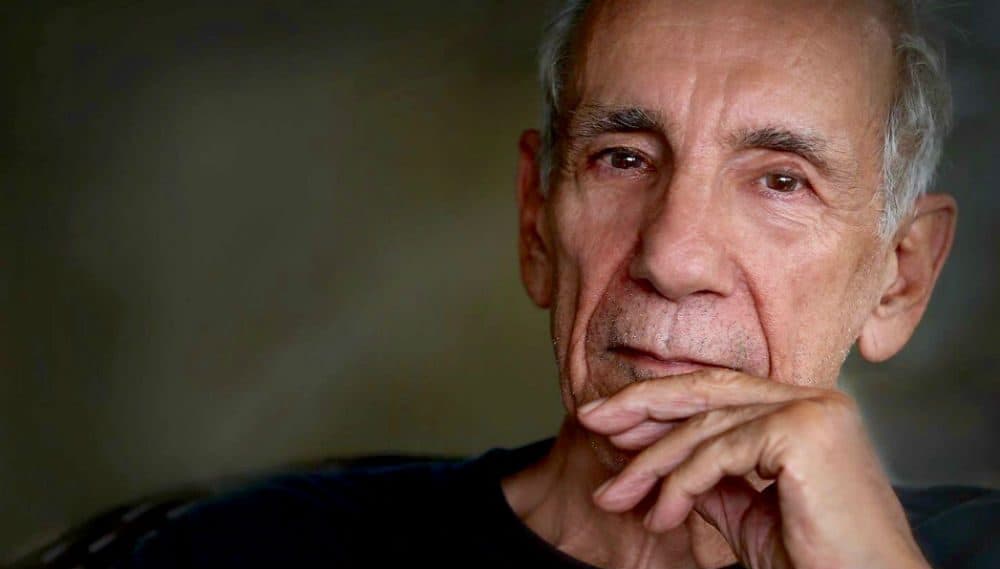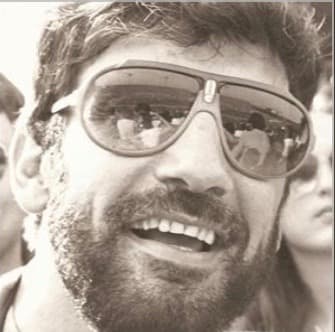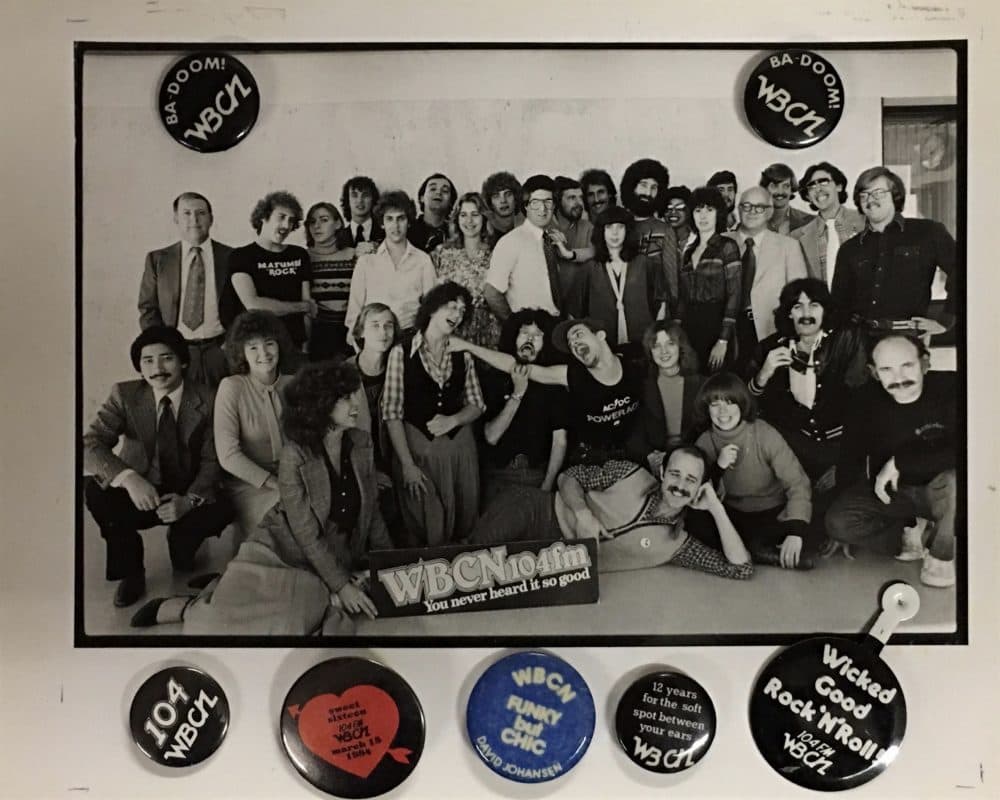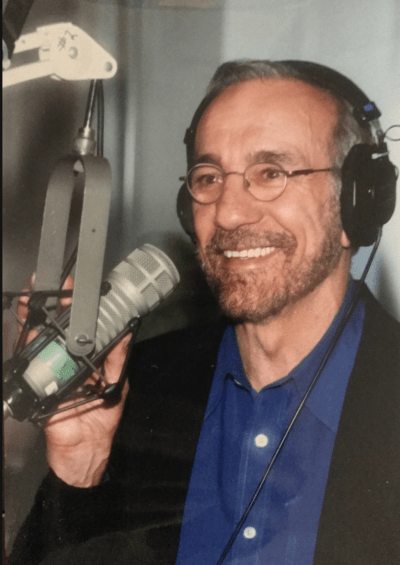Advertisement
Boston's 'Last DJ' Charles Laquidara Chronicles WBCN's Rock Radio Days

A strong case can be made that Charles Laquidara was the last of a breed: a major-market rock DJ who commanded top dollar on terrestrial radio, a jock whose irreverent personality drew scores of listeners to the station over several decades.
Morning drive has always been the most important -- the most listened to, the most profitable -- time slot in radio and Laquidara nailed down that 6 to 10 a.m. spot at WBCN (self-tagged “The Rock of Boston”) from 1972 to 1995. (Although you can subtract nearly two years because Laquidara was on sabbatical or, as he says wryly, " 'BCN was getting in the way of my cocaine abuse.")
After leaving WBCN, Laquidara immediately moved to classic rock sister station WZLX (both were owned by CBS), making way for the syndicated and hugely popular Howard Stern Show on WBCN.
Then on Aug. 5, 2000, Laquidara spun his last record in Boston, Tony Bennett’s “The Best Is Yet to Come” and headed to Maui for a life of semi-retirement.
Laquidara, on the phone from his home in Hawaii, considers this “last DJ” supposition for a moment and thinks it might be a trick question.
“Let me tell you why it might be a trick question,” he says. “Truthfully, yes, I think I am. Tom Petty’s song put that guy in Los Angeles [KLOS DJ Jim Ladd] as being the last DJ, but I’m definitely the last DJ. But now, that being said, it sounds like an ego trip. So, my other answer is: I don’t know.”
On Wednesday, March 14, Laquidara, now 79, will celebrate his 32 years in Boston radio with what he calls “a multimedia memoir” titled “Daze in the Life” at the Paradise Rock Club. It coincides, almost to the day, with WBCN’s 50th anniversary. Laquidara will be back in town to host and hold court. “They’re going to see an old man with a prune face,” he quips, “when I was really a hot chick magnet back in those days.”
At the Paradise, you'll get a sampling of the memoir and then the full product — thousands of hours of Laquidara audio and video — will go live at www.dazeinthelife.com on April 1.
“For several years people have asked,” says Laquidara, slipping into an extreme Boston accent, ‘Hey Chaaales, are you going to write a book? You should write a book. You interviewed George Harrison, you met with Al Pacino, you competed with Tony Curtis for [the role of] “The Boston Strangler.” You have all these stories that nobody else has.’ ”
That “Strangler” audition is true. In the mid-‘60s, Laquidara, who’d been studying at the Rhode Island School of Design, wanted to be an actor. He relocated to Los Angeles and was, in fact, considered for the Albert DeSalvo part Curtis snagged.

Instead, Laquidara more or less stumbled into a radio career and got a job as a DJ in Los Angeles. He mixed classical and rock, knowing little about either, but going on instinct. His instincts were good. By late 1968, he was in Boston at the “underground” rock station, WBCN, taking over for Peter Wolf when Wolf left to sing with the J. Geils Band fulltime.
WBCN started as a classical music station in 1958, but a decade later reformatted as an “underground” or free-form, progressive rock station. It then mutated over the years into what was called AOR (album-oriented rock) and later designated as “modern rock” or “active rock” by the radio trade magazines.
Laquidara was a quick-thinking, left-wing (before he got reined in) DJ who mixed topical observation and comical badinage with the music. “Music was a portion of his presentation,” says former WBCN program director Oedipus, by email from Thailand, where he and his wife spend half the year. “But his charm, wit, integrity and idiosyncratic personality made him the greatest rock DJ ever to crack the mic. WBCN’s DJs were personalities, and you listened with anticipation when they opened the microphone. They were entertainers first and foremost and none more than Charles.”
Advertisement
“I was probably somebody who talked like a real person,” Laquidara says, “and not like a phony. I made some mistakes, but I also was honest and talked about things the way I thought they were, just like if you met somebody in your coffee shop or bar. It was a learning process and a sharing process. It was radio that worked both ways. And it was also educational as opposed to today where they just throw s--- at you.”

It’s the rock fans from the ‘70s, ‘80s and ‘90s for whom WBCN had the most impact. There’s a generation alive today that never heard Laquidara on Boston airwaves and most of today’s teenagers never heard WBCN at all. WBCN went down in 2009, one of many rock-oriented stations that lost import or bit the dust.
“What happened was corporate became more and more money conscious,” Laquidara says. “Mel Karmazin was the CEO. His job, or any CEO’s job, is the bottom line, to take care of the stockholders. His job was to have BCN make money and with radio, as most people who are in the biz know, if you want to have great radio, you’re not going to have great ratings. … They stopped me from playing the blues songs I wanted to play or the folk songs I wanted to play when we started competing with the shock jocks out there.”
Oedipus, who started at the station as a punk rock DJ in 1977, became program director in 1981 and exited in 2004. “Oedipus really kept the station up in the ratings,” Laquidara says. “He had to follow orders to make the station very commercial and had to cut down the amount of great music we played. I definitely respect and appreciate that.”
Oedipus says a big reason for WBCN’s demise is governmental action.
“The Telecommunications Act of 1996 destroyed radio,” Oedipus says. “Corporations were now allowed to own multiple stations in the same market and across the country. Stations were no longer programmed locally, but from company headquarters. WBCN suffered the same fate with the homogenization of radio, eliminating talented individuals for bland generic middle managers and staff members with no input into the direction of the station.”
When Laquidara left WZLX and then when WBCN went down, he knew he wanted to leave a mark beyond people's hazy memories. He briefly considered writing a memoir, there was one main problem: He not only wasn’t a writer; he wasn’t even a reader: “I don’t like to read,” he says. “I guess a lot of people who know me real well know that’s one of my flaws, kind of a tragic flaw. I’ve only read one book since ‘Catcher in the Rye.’ So, I decided to put together an autobiography, but my autobiography is a book that I don’t write and you don’t read.”
What you’ll see at the website: “It’s 30 years of radio, give or take a few,” says Laquidara. “It’s gonna be a pretty awesome website. I can safely say if you sit in your house 24/7, never go outside and see the light of day, it would probably take 10 years to go through the whole thing.”
There will be audio from old radio shows and video clips. Laquidara will be talking to the camera, remembering points high and low. He once got into hot water for saying, “There must be a god. Ronald Reagan has cancer." But now he says, “There’s also a huge apology ... that was one of my biggest regrets in radio, saying that. It was a spur of the moment thing.”
There are segments from Duane Ingalls Glasscock, a 17½-year-old alter ego Laquidara concocted, who had the Saturday afternoon shift and drew huge numbers. At first Laquidara used his normal speaking voice -- "It sounded like me stoned" — but over time, "It became higher and the Boston accent thicker." Glasscock, says Laquidara, was like his own teenage id released. He laughed like a hyena; he was ferociously politically incorrect. (And, many have said, he was an inspiration for the young Howard Stern, a Boston University student in those days.)
Again, Laquidara circles back to that pride thing: Might this Paradise gig and website be perceived as a big ego trip?
“Everyone thinks I have this big ego, but I really don’t have this big ego,” he says. “I know my flaws. I know what I can do and I know what I can’t do. But I don’t lack self-esteem. I don’t think I exaggerate what I can do.”

These days, Laquidara contents himself with his own eclectic internet radio station, on which he plays whatever he wants. “Great radio is what I’m doing,” he says, “where I’ll play a Shostakovich piece and mix that with a Rolling Stones song. I’ll play Harry James and mix that with Miles Davis and mix that with Nirvana. I’ll just play whatever feels right and that’s not a big moneymaker. It’s better than ‘BCN's golden age, in my very humble and objective opinion.”
He also hosts the left-wing Facebook group, Blue Moonbat Bar & Grill. “Detractors like to say it’s just an echo chamber,” Laquidara says, “but it’s not. We have certain things in common: We don’t deal with people who deny climate change and global warming; we don’t deal with people who think the world is flat; we don’t deal with people who think the moon landing never happened or that 9/11 was a conspiracy. Starting there, we debate each other.”
Regarding the WBCN days, Laquidara ponders how much of his success was due to his personality and how much to the station’s musical programming.
“It’s an interesting question because it depends on who you talk to,” Laquidara says. “If you talk to Oedipus, who was a brilliant program director, he’ll say, ‘Nobody gives a s--- about Charles’ music. They like Charles’ personality and Charles’ charisma. That’s why they listened to Charles.' And he could be right.
"My personality was what kept me on the air for so long. The reason I succeeded was probably not the best reason in the world. I think. Because I f----- up so many times, people listened to that and thought, ‘Wow, great. This guy is just like me’ or, ‘If he can do that I can do it.’ ”
On Wednesday, March 14, Laquidara will celebrate his 32 years in Boston radio a “Daze in the Life” at the Paradise Rock Club.

